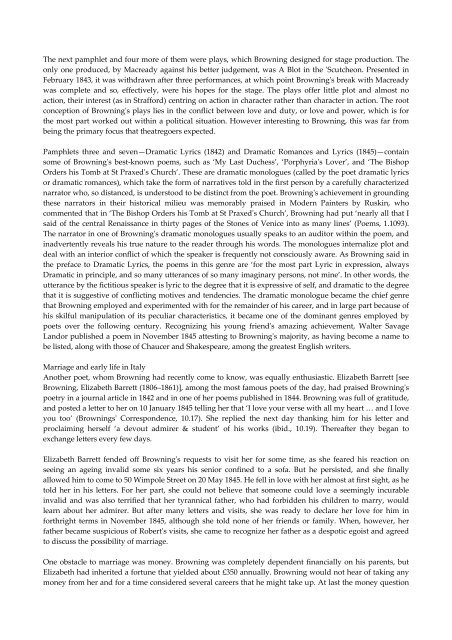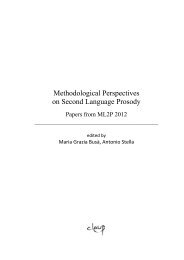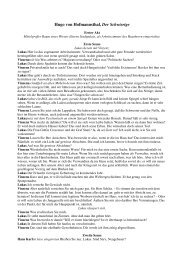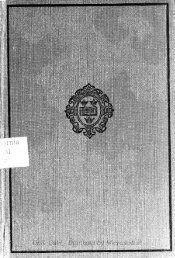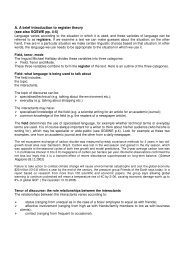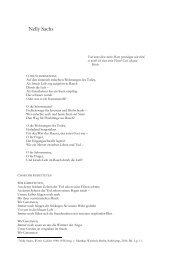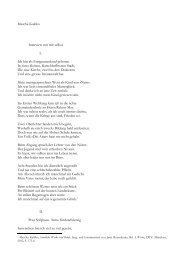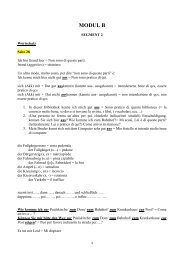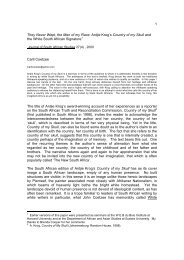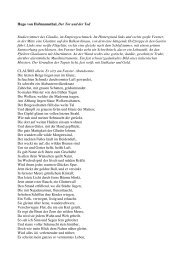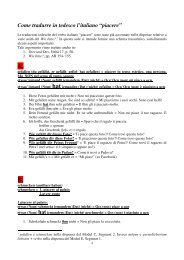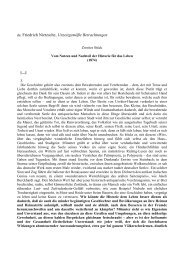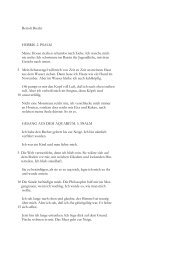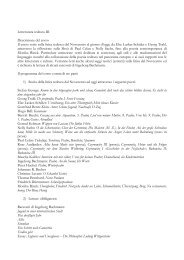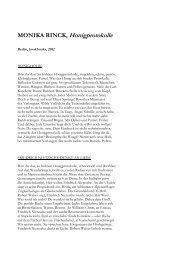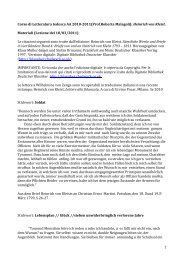The lives of the poets from The Dictionary of National Biography ...
The lives of the poets from The Dictionary of National Biography ...
The lives of the poets from The Dictionary of National Biography ...
You also want an ePaper? Increase the reach of your titles
YUMPU automatically turns print PDFs into web optimized ePapers that Google loves.
<strong>The</strong> next pamphlet and four more <strong>of</strong> <strong>the</strong>m were plays, which Browning designed for stage production. <strong>The</strong><br />
only one produced, by Macready against his better judgement, was A Blot in <strong>the</strong> ʹScutcheon. Presented in<br />
February 1843, it was withdrawn after three performances, at which point Browningʹs break with Macready<br />
was complete and so, effectively, were his hopes for <strong>the</strong> stage. <strong>The</strong> plays <strong>of</strong>fer little plot and almost no<br />
action, <strong>the</strong>ir interest (as in Strafford) centring on action in character ra<strong>the</strong>r than character in action. <strong>The</strong> root<br />
conception <strong>of</strong> Browningʹs plays lies in <strong>the</strong> conflict between love and duty, or love and power, which is for<br />
<strong>the</strong> most part worked out within a political situation. However interesting to Browning, this was far <strong>from</strong><br />
being <strong>the</strong> primary focus that <strong>the</strong>atregoers expected.<br />
Pamphlets three and seven—Dramatic Lyrics (1842) and Dramatic Romances and Lyrics (1845)—contain<br />
some <strong>of</strong> Browningʹs best‐known poems, such as ‘My Last Duchess’, ‘Porphyriaʹs Lover’, and ‘<strong>The</strong> Bishop<br />
Orders his Tomb at St Praxedʹs Church’. <strong>The</strong>se are dramatic monologues (called by <strong>the</strong> poet dramatic lyrics<br />
or dramatic romances), which take <strong>the</strong> form <strong>of</strong> narratives told in <strong>the</strong> first person by a carefully characterized<br />
narrator who, so distanced, is understood to be distinct <strong>from</strong> <strong>the</strong> poet. Browningʹs achievement in grounding<br />
<strong>the</strong>se narrators in <strong>the</strong>ir historical milieu was memorably praised in Modern Painters by Ruskin, who<br />
commented that in ‘<strong>The</strong> Bishop Orders his Tomb at St Praxedʹs Church’, Browning had put ‘nearly all that I<br />
said <strong>of</strong> <strong>the</strong> central Renaissance in thirty pages <strong>of</strong> <strong>the</strong> Stones <strong>of</strong> Venice into as many lines’ (Poems, 1.1093).<br />
<strong>The</strong> narrator in one <strong>of</strong> Browningʹs dramatic monologues usually speaks to an auditor within <strong>the</strong> poem, and<br />
inadvertently reveals his true nature to <strong>the</strong> reader through his words. <strong>The</strong> monologues internalize plot and<br />
deal with an interior conflict <strong>of</strong> which <strong>the</strong> speaker is frequently not consciously aware. As Browning said in<br />
<strong>the</strong> preface to Dramatic Lyrics, <strong>the</strong> poems in this genre are ‘for <strong>the</strong> most part Lyric in expression, always<br />
Dramatic in principle, and so many utterances <strong>of</strong> so many imaginary persons, not mine’. In o<strong>the</strong>r words, <strong>the</strong><br />
utterance by <strong>the</strong> fictitious speaker is lyric to <strong>the</strong> degree that it is expressive <strong>of</strong> self, and dramatic to <strong>the</strong> degree<br />
that it is suggestive <strong>of</strong> conflicting motives and tendencies. <strong>The</strong> dramatic monologue became <strong>the</strong> chief genre<br />
that Browning employed and experimented with for <strong>the</strong> remainder <strong>of</strong> his career, and in large part because <strong>of</strong><br />
his skilful manipulation <strong>of</strong> its peculiar characteristics, it became one <strong>of</strong> <strong>the</strong> dominant genres employed by<br />
<strong>poets</strong> over <strong>the</strong> following century. Recognizing his young friendʹs amazing achievement, Walter Savage<br />
Landor published a poem in November 1845 attesting to Browningʹs majority, as having become a name to<br />
be listed, along with those <strong>of</strong> Chaucer and Shakespeare, among <strong>the</strong> greatest English writers.<br />
Marriage and early life in Italy<br />
Ano<strong>the</strong>r poet, whom Browning had recently come to know, was equally enthusiastic. Elizabeth Barrett [see<br />
Browning, Elizabeth Barrett (1806–1861)], among <strong>the</strong> most famous <strong>poets</strong> <strong>of</strong> <strong>the</strong> day, had praised Browningʹs<br />
poetry in a journal article in 1842 and in one <strong>of</strong> her poems published in 1844. Browning was full <strong>of</strong> gratitude,<br />
and posted a letter to her on 10 January 1845 telling her that ‘I love your verse with all my heart … and I love<br />
you too’ (Browningsʹ Correspondence, 10.17). She replied <strong>the</strong> next day thanking him for his letter and<br />
proclaiming herself ‘a devout admirer & student’ <strong>of</strong> his works (ibid., 10.19). <strong>The</strong>reafter <strong>the</strong>y began to<br />
exchange letters every few days.<br />
Elizabeth Barrett fended <strong>of</strong>f Browningʹs requests to visit her for some time, as she feared his reaction on<br />
seeing an ageing invalid some six years his senior confined to a s<strong>of</strong>a. But he persisted, and she finally<br />
allowed him to come to 50 Wimpole Street on 20 May 1845. He fell in love with her almost at first sight, as he<br />
told her in his letters. For her part, she could not believe that someone could love a seemingly incurable<br />
invalid and was also terrified that her tyrannical fa<strong>the</strong>r, who had forbidden his children to marry, would<br />
learn about her admirer. But after many letters and visits, she was ready to declare her love for him in<br />
forthright terms in November 1845, although she told none <strong>of</strong> her friends or family. When, however, her<br />
fa<strong>the</strong>r became suspicious <strong>of</strong> Robertʹs visits, she came to recognize her fa<strong>the</strong>r as a despotic egoist and agreed<br />
to discuss <strong>the</strong> possibility <strong>of</strong> marriage.<br />
One obstacle to marriage was money. Browning was completely dependent financially on his parents, but<br />
Elizabeth had inherited a fortune that yielded about £350 annually. Browning would not hear <strong>of</strong> taking any<br />
money <strong>from</strong> her and for a time considered several careers that he might take up. At last <strong>the</strong> money question


